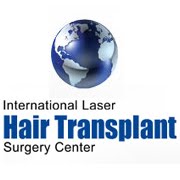Unfortunately,
we live in a time where premature baldness and male pattern baldness are
pretty common. People's poor lifestyle choices are responsible here. Such
problems have given rise to a slew of effective hair treatments. Are you also
struggling with hair loss and looking for a safe and effective solution?
Platelet Rich Plasma (PRP) hair loss treatment is the answer you've been
searching for. This non-surgical procedure involves injecting a dose of
platelet-rich plasma into the scalp to stimulate hair growth and thicken hair. The
dermatologist simply removes blood with a needle and then injects platelet-rich
plasma into the specified spot. In this blog post, we'll break down the
potential benefits of PRP for hair loss.
·
Stimulates
Hair Follicle Growth
Platelets of your own collected
blood include growth factors, which stimulate and encourage hair
development. PRP injections into the scalp are able to give life to dead hair
follicles which results in increased hair growth for fuller head. It
has the potential for positive effects for the majority of people within
three months. Even the rest can see obvious changes in their hair growth within
a year.
·
Safe
and Natural
Being non-invasive and non-surgical is
the biggest green flag in effective hair treatment. But the main reason this
process is so safe is that you use your own body cells. Because PRP hair loss
treatment uses the patient's own blood, there is no chance of allergic
reactions or treatment rejection. Also, the growth factors in PRP are
organic nutrients that are produced by the body, making it a safe and
natural choice for hair regrowth.
·
No
Scarring as its Non-Surgical
People who are concerned about apparent
scars from surgical hair treatments such as hair transplant surgery might
consider this interesting. Because nobody wants to go through a therapy
that would leave them with scars. Fortunately, PRP hair loss treatment is not
one of them. As the process only uses needles, there are no wounds or scars on
the scalp. While hair transplant surgery can help restore hair growth, it
usually requires creating incisions on the scalp, which can leave
noticeable scars.
·
Minimal
to Bearable Side Effects
PRP hair loss treatment tends to be
generally favourable as there is no surgery involved in the therapy, the
patient will only feel little discomfort when the injection is injected. Even
the pain varies depending on where it is being treated as well as your pain
tolerance. Dermatologists use local anaesthesia on patients who have very low
pain tolerance levels. This will ensure that you do not experience any
discomfort., with minor discomfort and swelling at the injection site. These
problems usually go away with pain killers within a few days.
·
Little
to Almost No Downtime
In today’s busy life, everyone wants quick
and easier method to get rid of anything they dislike. PRP hair loss treatment
might be a highly handy choice for those who are interested in restoring their
hair without major downtime or disturbance to their everyday lives. PRP
therapy is a minimally invasive technique that usually takes less than an hour.
You are not required to spend the full day at the clinic. After session you can
leave immediately even for the office or meeting after the treatment.
Final
Words
PRP
treatment for hair loss is a promising option for individuals looking to
improve the appearance and health of their hair. The PRP hair loss treatment
has a track record of success in treating thin hair line and baldness. If
you are experiencing hair loss, it may be a good option. Deciding on a
qualified surgeon is equally important as choosing a suitable treatment because
surgeon and clinic can make or break your whole hair treatment
experience. If you live in Pakistan, Surgeon at ILHT Pak has
years of expertise with PRP treatments and can help you regrow your hair.
